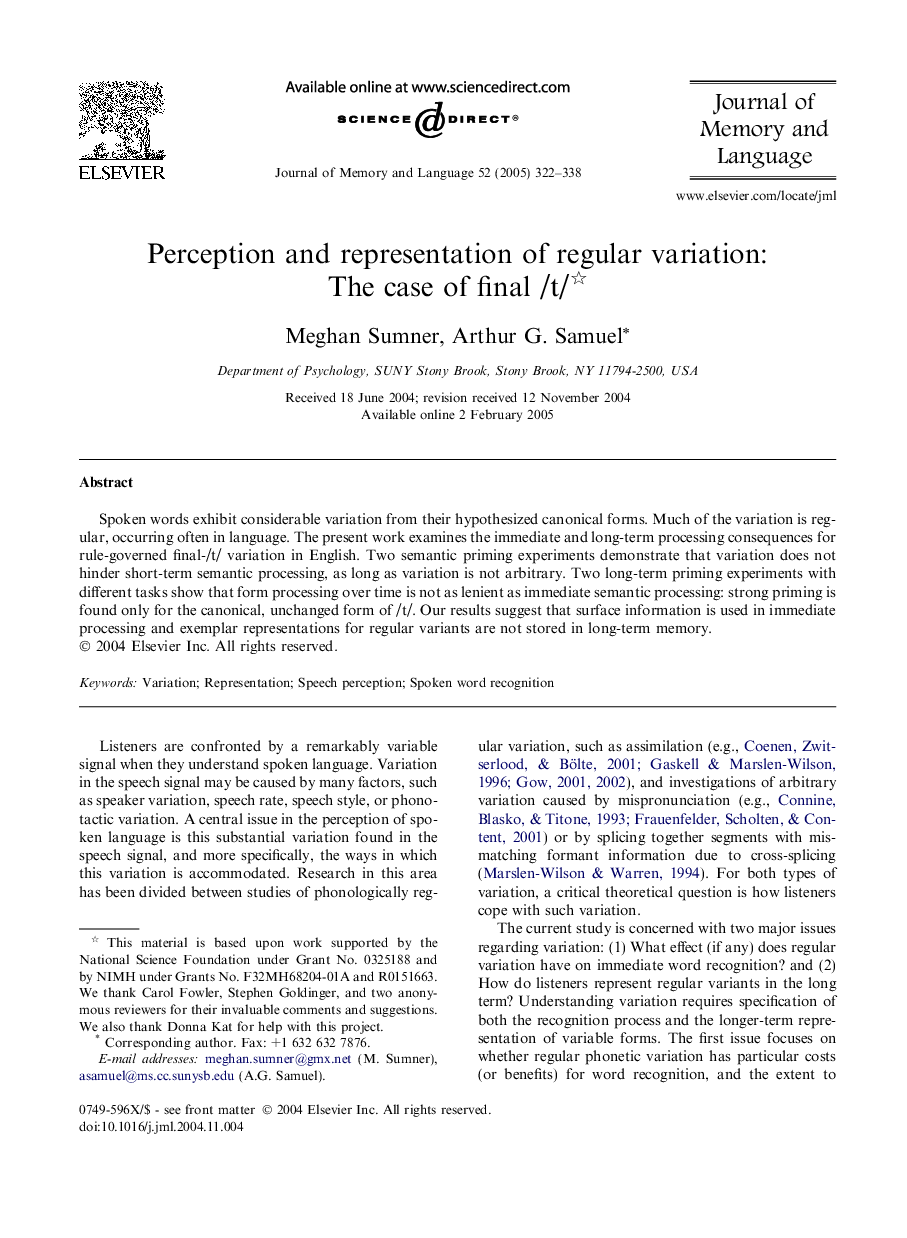| Article ID | Journal | Published Year | Pages | File Type |
|---|---|---|---|---|
| 10459881 | Journal of Memory and Language | 2005 | 17 Pages |
Abstract
Spoken words exhibit considerable variation from their hypothesized canonical forms. Much of the variation is regular, occurring often in language. The present work examines the immediate and long-term processing consequences for rule-governed final-/t/ variation in English. Two semantic priming experiments demonstrate that variation does not hinder short-term semantic processing, as long as variation is not arbitrary. Two long-term priming experiments with different tasks show that form processing over time is not as lenient as immediate semantic processing: strong priming is found only for the canonical, unchanged form of /t/. Our results suggest that surface information is used in immediate processing and exemplar representations for regular variants are not stored in long-term memory.
Related Topics
Life Sciences
Neuroscience
Cognitive Neuroscience
Authors
Meghan Sumner, Arthur G. Samuel,
